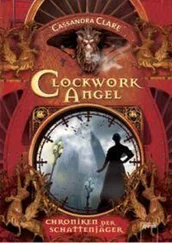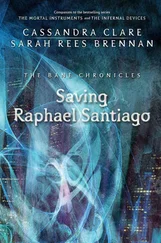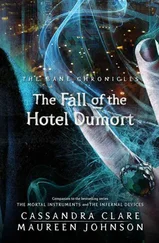Until you loved a mortal. Then time became gold in a miser’s hands, every bright year counted out carefully, infinitely precious, and each one slipping through your fingers.
Imasu told him about his father’s death and about his sister’s love for dancing that had inspired Imasu to play for her, and that this was the second time he had ever been in love. He was both indígena and
Spanish, more mingled even than most of the mestizos, too Spanish for some and not
Spanish enough for others. Magnus talked a little with Imasu about that, about the
Dutch and Batavian blood in his own veins. He did not talk about demonic blood or his father or magic, not yet.
Magnus had learned to be careful about giving his memories with his heart. When people died, it felt like all the pieces of yourself you had given to them went as well. It took so long, building yourself back up until you were whole again, and you were never entirely the same.
That had been a long, painful lesson.
Magnus had still not learned it very well, he supposed, as he found himself wanting to tell Imasu a great deal. He did not only wish to talk about his parentage, but about his past, the people he had loved —about Camille; and about Edmund
Herondale and his son, Will; and even about Tessa and Catarina and how he had met her in Spain. In the end he broke down and told the last story, though he left out details like the Silent Brothers and
Catarina’s almost being burned as a witch.
But as the seasons changed, Magnus began to think that he should tell Imasu about magic at least, before he suggested that
Magnus stop living with Catarina and
Ragnor, and Imasu stop living with his mother and sister, and that they find a place together that Imasu could fill with music and Magnus with magic. It was time to settle down, Magnus thought, for a short while at least.
It came as a shock when Imasu suggested, quite quietly: “Perhaps it is time for you and your friends to think of leaving Puno.”
“What, without you?” Magnus asked.
He had been lying sunning himself outside
Imasu’s house, content and making his plans for a little way into the future. He was caught off guard enough to be stupid.
“Yes,”
Imasu answered, looking regretful about the prospect of making himself clearer. “Absolutely without me.
It’s not that I have not had a wonderful time with you. We have had fun together, you and I, haven’t we?” he added pleadingly.
Magnus nodded, with the most nonchalant air he could manage, and then immediately ruined it by saying, “I thought so. So why end it?”
Perhaps it was his mother, or his sister, some member of Imasu’s family, objecting to the fact that they were both men. This would not be the first or the last time that happened to Magnus, although Imasu’s mother had always given Magnus the impression he could do anything he liked with her son just so long as he never touched a musical instrument in her presence ever again.
“It’s you,” Imasu burst out. “It is the way you are. I cannot be with you any longer because I do not want to be.”
“Please,” Magnus said after a pause.
“Carry on showering me with compliments. This is an extremely pleasant experience for me, by the way, and precisely how I was hoping my day would go.”
“You are just . . .” Imasu took a deep, frustrated breath. “You seem always . . . ephemeral, like a glittering shallow stream that passes the whole world by.
Not something that will stay, not something that will last.” He made a small, helpless gesture, as if letting something go, as if Magnus had wanted to be let go. “Not someone permanent.”
That made Magnus laugh, suddenly and helplessly, and he threw his head back.
He’d learned this lesson a long time ago:
Even in the midst of heartbreak, you could still find yourself laughing.
Laughter had always come easily to
Magnus, and it helped, but not enough.
“Magnus,” said Imasu, and he sounded truly angry. Magnus wondered how many times when Magnus had thought they were simply arguing, Imasu had been leading up to this moment of parting. “This is exactly what I was talking about!”
“You’re quite wrong, you know. I am the most permanent person that you will ever meet,” said Magnus, his voice breathless with laughter and his eyes stung a little by tears. “It is only that it never makes any difference.”
It was the truest thing he had ever told
Imasu, and he never told him any more truth than that.
Warlocks lived forever, which meant they saw the intimate, terrible cycle of birth, life, and death over and over again. It also meant that they had all been witness to literally millions of failed relationships.
“It’s for the best,” Magnus informed
Ragnor and Catarina solemnly, raising his voice to be heard above the sounds of yet another festival.
“Of course,” murmured Catarina, who was a good and loyal friend.
“I’m surprised it even lasted this long; he was much better looking than you,” mumbled Ragnor, who deserved a cruel and terrible fate.
“I’m only two hundred years old,” said
Magnus, ignoring his friends’ mutual snort at the lie. “I can’t settle down yet. I need more time to devote myself to debauchery.
And I think—” He finished his drink and looked speculatively around. “I think I am going to ask that charming young lady over there to dance.”
The girl he was eyeing, he noted, was eyeing him back. She had lashes so long they were almost sweeping her shoulders.
It was possible Magnus was a little bit drunk. Chicha de molle was famous for both its swift effects and the horrible hangovers that followed.
Ragnor twitched violently and made a sound like a cat whose tail has been stepped on. “Magnus, please, no. The music was bad enough!”
“Magnus is not as bad at dancing as he is at the charango ,” Catarina remarked thoughtfully. “Actually, he dances quite well. Albeit with a certain, er, unique and characteristic flair.”
“I do not feel even slightly reassured,”
Ragnor said. “Neither of you are reassuring people.”
After a brief heated interlude, Magnus returned to the table breathing slightly hard. He saw that Ragnor had decided to amuse himself by hitting his own forehead repeatedly against the tabletop.
“What did you think you were doing?”
Ragnor demanded between gloomy thumps.
Catarina contributed, “The dance is a beautiful, traditional dance called El
Alcatraz, and I thought Magnus performed it—”
“Brilliantly,”
Magnus suggested.
“Dashingly? Devastatingly attractively?
Nimbly?”
Catarina pursed her lips in thought before selecting the appropriate word.
“Spectacularly.”
Magnus pointed at her. “That’s why you’re my favorite.”
“And traditionally the man gyrates—”
“You did gyrate spectacularly,” Ragnor observed in a sour voice.
Magnus made a little bow. “Why, thank you.”
“—and attempts to set fire to his partner’s skirts with a candle,” Catarina continued. “It’s a wonderful, vibrant, and rather gorgeous dance.”
“Oh, ‘attempts,’ is it?” Ragnor asked.
“So it is not traditional for someone to utilize magic, actually to set the woman’s skirts and his own ostentatious coat on fire, and keep dancing even though both the dance partners involved are now actually spinning towers of flame?”
Catarina coughed.
“Not strictly traditional, no.”
“It was all under control,” Magnus declared loftily. “Have a little faith in my magic fingers.”
Even the girl he’d danced with had thought it was some marvelous trick. She had been enveloped in real, bright fire and she had tipped back her head and laughed, the tumble of her black hair becoming a crackling waterfall of light, the heels of her shoes striking sparks like glittering leaping dust all over the floor, her skirt trailing flame as if he were following a phoenix tail. Magnus had spun and swung with her, and she’d thought he was marvelous for a single moment of bright illusion.
Читать дальше












